Keynote Session
-
Korea
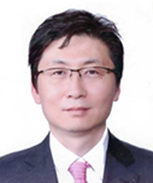 Dr. SangYule Choi
Induk University, Seoul, Korea
Dr. SangYule Choi
Induk University, Seoul, Korea
-
Korea
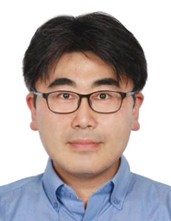 Dr. Lee, Junwon
Samsung SDS
Dr. Lee, Junwon
Samsung SDS
-
Kazakhstan
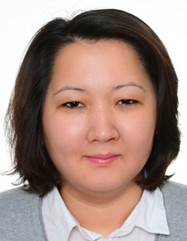 Dr. Zhanna Suimenbayeva
Mukhametzhan Tynyshpayev ALT University
Dr. Zhanna Suimenbayeva
Mukhametzhan Tynyshpayev ALT University
-
Kazakhstan
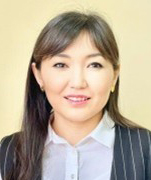 Dr. Assel Mukasheva
Kazakh-British Technical University
Dr. Assel Mukasheva
Kazakh-British Technical University
-
Turkey
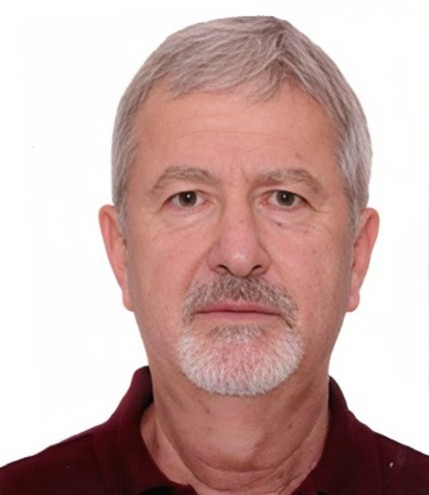 Dr.Aydogan Ozdemir, Professor
Kadir Has Universityş Turkey
Dr.Aydogan Ozdemir, Professor
Kadir Has Universityş Turkey
-
Vietnam
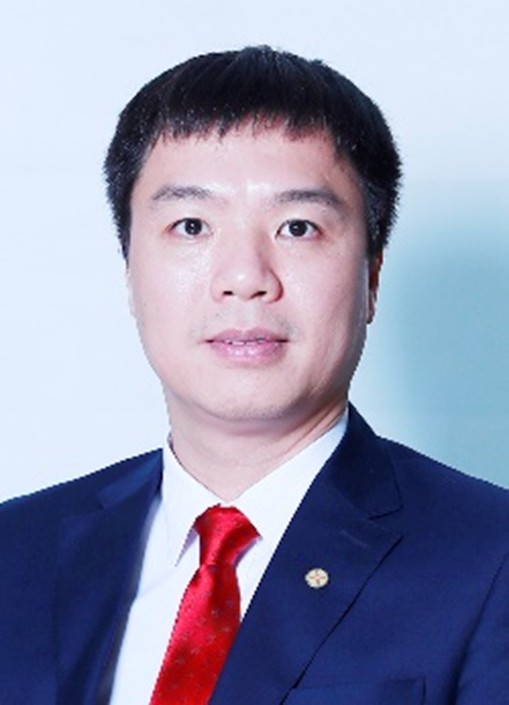 Dr. DANG Bang Viet
Vietnam Electricity (EVN)
Dr. DANG Bang Viet
Vietnam Electricity (EVN)
-
Korea
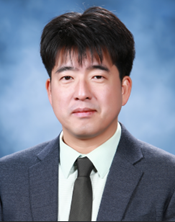 Dr./Professor Joondong KIM
Incheon National University
Dr./Professor Joondong KIM
Incheon National University
ICEF2025 Keynote Speaker

SangYule Choi
Induk University, Seoul, Korea
The Development of Weather Based Intelligent Demand Controller
Abstract
Direct Load Control(DLC) program is an advanced agreement between a power utility and customers to control some customers’ appliances (e.g., air conditioners and water heaters). It is an incentive-based demand response system in which the utility provides the affected customer with financial incentives. Under the existing DLC program, the utility turn on/off customers’ appliances without considering the customer's inconvenience. that causes a lot of customers are reluctant to participate in the DLC program. In this paper, To solve this problem, the author present weather based intelligent demand controller to analyze correlation between weather condition and customers energy consumption and to predict customers energy consumption. To demonstrate the validity of the proposed demand controller, porto type demand controller are developed and applied to real customer load.
Biography
He received his B.S, M.S, and Ph.D degrees in electrical engineering from Sung Kyun Kwan University, Suwon, South Korea, in 1996, 1998 and 2002, respectively. Since 2004, he has been a Professor in the Department of Mechatronics Engineering, Induk University, Seoul, Korea. His research interests include demand control, load forecasting and power distribution automation
ICEF2025 Keynote Speaker

Dr. Lee, Junwon
Samsung SDS
Secure and Scalable IoT: An IoT Network Platform Based on Network Overlay and MAC
Abstract
In the VPN (with data encryption) applied to protect the distributed network over the public internet, the small computing resource of low-spec devices limits TCP/IP-based VPN use. Although lightweight IoT communication protocols such as LoWPAN are used, TCP/IP-based VPNs such as IPsec and OpenVPN require bandwidth, CPU/memory, and electric power.
To provide a safe and lightweight network, we propose a secure and scalable IoT platform (SSI) that can prevent security threats while minimizing the usage of computing resources. SSI, which has a lower load than TCP/IP-based VPN, is a layer 2 VPN and supplies data link frame encryption. L2TP and VXLAN are provided for a scalable layer 2 VPN, and the MACsec algorithm encrypts layer 2 frames. Furthermore, SSI shows 30% network speed improvement and 31.6% CPU usage reduction compared to the network applied OpenVPN.
Biography
He is currently serving as a Principal Engineer at Samsung SDS and holds a Ph.D. in Computer Science and Engineering. He began in 2002 as a Network Engineer, dedicating eight years to consulting and developing network infrastructures for notable companies including Tesco, Hynix, and Samsung. Since 2011, he has advanced his career at the Samsung Security Center as a Security Engineer, where his main duties encompass cloud security auditing, evaluating system architecture for security, and managing security incidents.
His doctoral research delved into AI-based traffic detection and IoT platform security, culminating in contributions to various journals and conferences. More recently, his research interests have shifted towards developing methods for verifying network data through graph embedding techniques. And He is actively working on projects that apply these studies to the security of the company.
ICEF2025 Keynote Speaker

Dr. Zhanna Suimenbayeva
Mukhametzhan Tynyshpayev ALT University
Rail Transport Energy in Kazakhstan: A Strategic Vector in the Era of Green Transformation
Abstract
Modern challenges—such as the growing volume of freight and passenger transportation, the need to reduce greenhouse gas emissions, and the global shift toward sustainable technologies—demand a rethinking of energy strategies in Kazakhstan's railway sector. This keynote will explore key development directions including electrification, the integration of renewable energy sources, improvements in rolling stock energy efficiency, and the potential use of alternative fuels. Special attention will be given to the role of rail transport energy in achieving the national decarbonization strategy and building a sustainable transportation infrastructure.
Biography
Zhanna Suimenbayeva has 20 years of scientific experience. Specialist in the field of space, information and satellite technologiesAlso she was a project manager in international projects funded by6 Erasmus+, USAID, UNDP and International Union of Railways. She is the author of 2 textbooks, 1 patent and more than 45 scientific publications in local publications, publications of near and far abroad (including those with a non-zero impact factor).
ICEF2025 Keynote Speaker

Dr. Assel Mukasheva
Kazakh-British Technical University
Resilience of UNet-Based Models under Adversarial Conditions in Medical Image Segmentation
Abstract
Adversarial modifications of input data can degrade the stability of deep neural networks in medical image segmentation. This study evaluates the robustness of UNet and Att-UNet++ architectures using the NuInsSeg dataset with annotated nuclear regions from various tissue sources. Both models were trained and tested under eight perturbation types, including gradient-based, iterative, and stochastic methods, with identical parameter settings. In the absence of perturbations, Att-UNet++ produced higher segmentation results with a Dice of 0.7160 and a mean IoU of 0.6190 compared to 0.6424 and 0.4732 for UNet. Under NI-FGSM and Gaussian noise, Att-UNet++ experienced a greater reduction in mean IoU, reaching 0.1215 and 0.0658, while UNet maintained 0.1968 and 0.2329. Loss landscape analysis showed smoother surfaces for Att-UNet++, yet revealed increased responsiveness to directional gradients. The findings suggest that improvements in segmentation accuracy through architectural modifications may be accompanied by increased vulnerability to input perturbations, highlighting the necessity of robustness evaluation in model development for medical image analysis.
Biography
Professor Mukasheva currently holds the position of Professor at the School of IT and Engineering at Kazakh-British Technical University (KBTU), where she has been contributing for the past three years. Her professional expertise is computer science and data analytics and cyber security. She has authored over 100 peered reviewed papers in various international journals. She became the winner of the contest “Best University Teacher - 2022” and received a grant from the Ministry of Science and Higher Education of the Republic of Kazakhstan. Also in 2023 she received a grant from the U.S. Embassy in Kazakhstan to conduct research in the field of cyber security. By the Decision of the committee for quality assurance in the field of Science and higher Education under the Ministry of Science and Higher Education of the Republic of Kazakhstan, Professor Mukasheva was awarded the Title of Associate Professor in the specialty “Computer Science and Information Technology” in 2024. She has published a number of monographs and textbooks. Her research and teaching focus on advancing education, research, and innovation in her field.
ICEF2025 Keynote Speaker

Dr.Aydogan Ozdemir, Professor
Kadir Has Universityş Turkey
Resilient traction power supply systems in railways with interconnected microgrid
Abstract
The increasing demand for sustainable and reliable railway transportation has spurred innovations in traction power supply systems, particularly through the integration of microgrids. This talk presents a comprehensive overview of resilient traction power supply systems in modern railways, emphasizing the role of interconnected microgrids in enhancing operational reliability, energy efficiency, and system flexibility.
We explore key architectural advancements that enable bi-directional power flow, dynamic load management, and fault tolerance. Particular attention is given to the coordination between railway substations, renewable energy sources, energy storage systems, and intelligent control frameworks that form the backbone of interconnected microgrids. Case studies and simulation insights highlight how these systems can effectively mitigate power outages, reduce dependency on centralized grids, and support the transition toward greener railway networks. The speech concludes with a discussion on current challenges, future research directions, and policy implications for large-scale deployment.
Biography
Dr. Aydogan Ozdemir earned his B.Sc., M.Sc., and Ph.D. degrees in electrical engineering from Istanbul Technical University (ITU) in Istanbul, Turkey, in 1980, 1982, and 1990, respectively. With over 40 years of experience at ITU, he currently serves as a full professor and the R&D Director at Kadir Has University in Istanbul. His research interests focus on electric power systems and high-voltage engineering, particularly in asset management, reliability analysis, and the application of intelligent methods in power system modeling, simulation, analysis, control, smart grids, and building automation systems. He has published more than 200 technical papers and has been involved in several research projects. Additionally, he is a member of the National Chamber of Turkish Electrical Engineering and a Senior Member of IEEE PES.
ICEF2025 Keynote Speaker

Dr. DANG Bang Viet
Vietnam Electricity (EVN)
Deputy Director of Science Technology & Digital Transformation Department
Abstract
The presentation begins with a comprehensive overview of Vietnam’s power system, encompassing the structure and current status of electricity generation, high-voltage transmission networks, and the distribution and retail sector. The next section will discuss key development directions for Vietnam’s power system based on the Power Development Plan 8. Following this, the presentation addresses some pressing research issues for Vietnam’s power system. In the final part, the presentation highlights Vietnam’s latest policies to promote innovation in the energy sector, including new regulations, R&D incentives, and increased collaboration among industry, academia, and policymakers. These efforts aim to foster technological advancement and support the sustainable growth of Vietnam’s power sector.
Biography
Dr. Dang Bang Viet graduated from Hanoi University of Science and Technology with an Engineer’s degree in Power Systems Engineering in 2002. He completed his Master’s program at Grenoble Institute of Technology (France) in 2003. In 2006, he obtained his Ph.D. degree in Power Electronics from Grenoble 1 University (France). From 2007 – 2008, Dr. Viet worked as a research associate at the University of Manchester (UK), where he participated in a high power DC-DC converter design project.
Currently, Dr. Viet is the Deputy Director of the Science, Technology & Digital Transformation Department at Vietnam Electricity (EVN). His work focuses on promoting R&D projects as well as establishing the innovation management system within EVN, aiming to enhance operational efficiency and foster digital transformation in the power sector.
ICEF2025 Keynote Speaker

Dr./Professor Joondong KIM
Incheon National University
Transparent Photovoltaics for Sustainable Ground and Water Energy Platform and Photonic Neuromorphic Devices for Intelligent Systems
Abstract
The global transition toward renewable energy and intelligent computing is driving the development of multifunctional, environmentally integrated technologies. This study presents innovations in transparent photovoltaics and neuromorphic devices designed for both terrestrial and underwater applications. A highly efficient transparent photovoltaic (TPV) module was developed, comprising an FTO/n-ZnO/p-NiO/silver nanowires (AgNWs)/ZnO structure with a transparent p–n junction. By employing metal sputtering techniques to assemble module arrays, we significantly increased the voltage output per unit area, offering new opportunities for building-integrated transparent photovoltaics (BITPVs) that generate solar energy without obstructing visibility.
In parallel, we introduce a water-enhanced transparent photovoltaic system for underwater power generation, addressing critical needs in sensing, networking, and communication for ocean exploration. This wide-bandgap heterojunction device achieves an average visible transmittance of 41% and an underwater power conversion efficiency of 10.25% under monochromatic 470 nm light. The water medium not only focuses incident light but also improves light collection angles, while impedance spectroscopy reveals that a water-induced electric double layer enhances electron transport and photogeneration. Demonstrating its practicality, the system successfully powered a 10 mW load underwater, establishing a pathway toward secure, energy-autonomous underwater environments.
Additionally, we report on a photonic neuromorphic device based on 2D layer (SnS) into the transparent heterojunction device, capable of performing basic logic operations (OR, NOT, AND) using light as a stimulus. This artificial synapse emulates neurotransmitter-like behavior, modulating signal processing for precise control of logic functions. Such a system promises significant advancements in neuromorphic computing, with potential applications in AI, humanoid robotics, and adaptive intelligent electronics.
Together, these developments represent a significant step toward seamlessly integrated energy-harvesting, intelligent computing, and environmentally adaptive systems for the future.
Biography
Professor Joondong Kim is a professor in the Department of Electrical Engineering and a director in Multidisciplinary Core Institute for Future Energies (MCIFE) at Incheon National University in Korea. He got his PhD in 2006 from State University of New York at Buffalo and MS in 2001 from Rensselaer Polytechnic Institute, NY, USA. He has research topics on energy devices (transparent photovoltaics and hydrogen generator), sensors, bioinspired electronics and functional designs. He published + 340 SCI papers and holds + 100 patents. - Commendation (Invention Award), Minister of Science and Technology Information and Communication (STIC) and +5 National Awards.
 International Conference on Electrical Facilities
International Conference on Electrical Facilities 